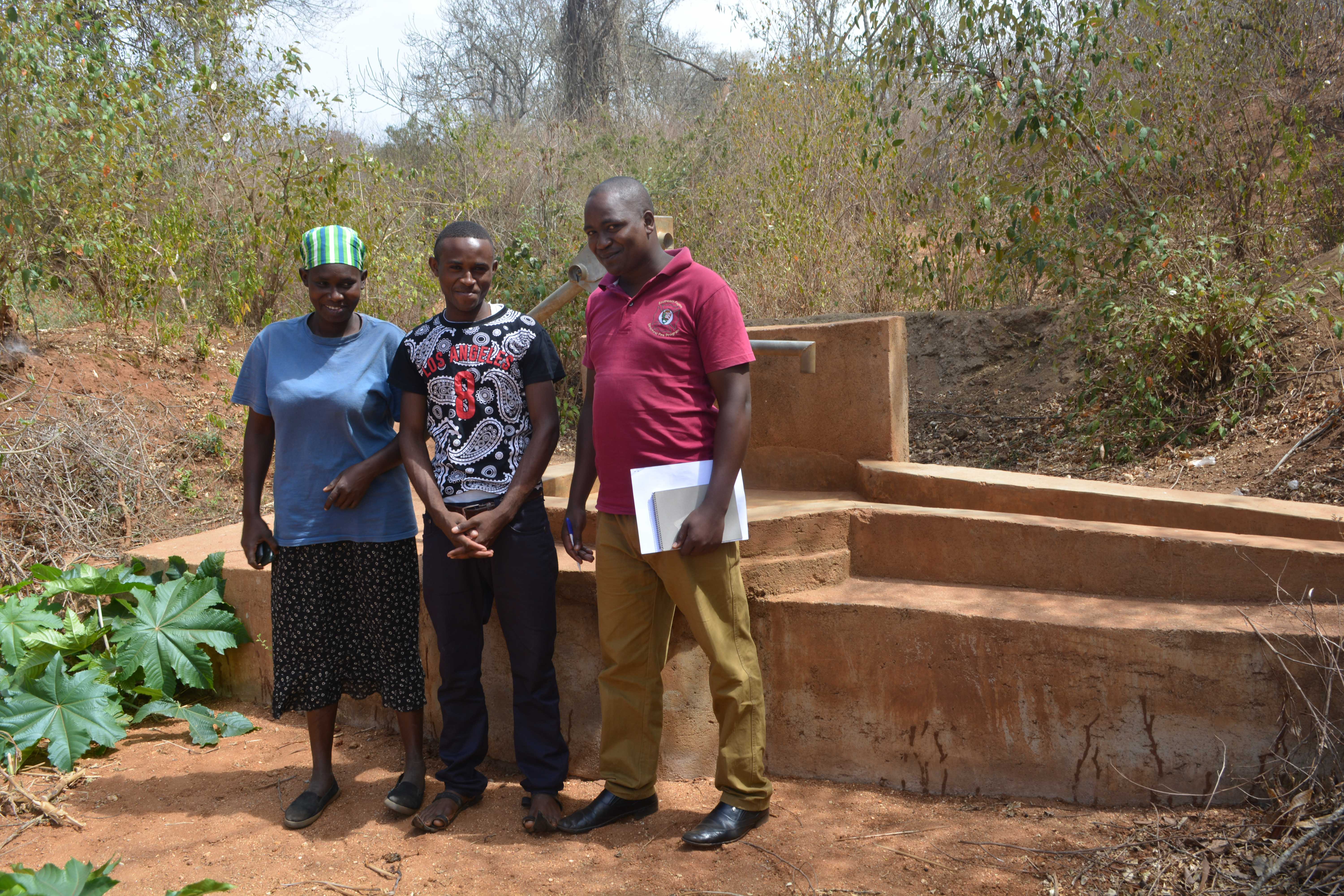This project is a part of our shared program with Africa Sand Dam Foundation. Our team is pleased to directly share the below report (edited for clarity, as needed).
Welcome to the Community
The members of Matoma Nyumbi Kumi Self-Help Group came together to find solutions to their water problems by sharing resources and constructing new water points. Matoma Nyumbi Kumi means "10 jerrycans" in Swahili. They constructed a sand dam in 2014, though without knowledge on how to do so properly. The group members want to control soil erosion in the area, and have started doing so by building terraces on their farms. They are all farmers who either keep livestock or cultivate fruits and vegetables, with the majority growing fruit trees. These farmers then sell the fruit tree saplings. Without water, the farmer's opportunities are suppressed and income is lowered. They have a merry-go-round project (a fund-sharing plan) which encourages them to meet frequently. In the case a member is not feeling well, they help each other in catering for medical expenses. Mumbuni Village is home to 400 people.
Water Situation
This hand-dug well will be the second that this group is implementing with us. The first hand-dug well was completed in the beginning of 2015, adjacent to a sand dam that is still maturing. Hand-dug wells are built to give locals safe access to water (the water will grow clearer as the dam matures and builds up more sand). The sand dam has proven a huge asset to agriculture in this area. Just last year, the group was able to plant 800 fruit tress!
However, the first sand dam and hand-dug well are too far (over 1.5 km) for some of the community members, and so they will implement this new hand-dug well further along the river. With just one sand dam and well, long lines are the norm. A second well will reduce the crowds at the water points and provide a sustainable supply of water for everyone in the community. Some families can’t even afford a reservoir tank for water storage, so they have no choice but to fetch water on a daily basis (Janet, one of the self-help group members, is fortunate to have a 100-liter barrel for water storage. Check out her home pictured below!).
Sanitation Situation
100% of households have a pit latrine. The conditions of these latrines vary according to a family’s income level. Families that have more money invest in a deeper pit, while families that don't have much cannot. Most of the pits we saw during our visit were almost full. Most women had a dish rack and clothesline to dry their families' things, but we only counted eight hand-washing stations. This certainly isn’t enough for 400 people!
Each household has a designated compost pit where they dispose of their waste. The compost is then used to increase soil fertility on farms.
The group is in their second year of working with ASDF, and in the first year, the group was trained on hygiene and sanitation to increase awareness on waste disposal, hand-washing, personal hygiene and water treatment. With the availability of water, the community is able to practice some of the learnt concepts. Farmer and mother Ann Muia says "With water close to our homes we have improved cleanliness. Our children bathe daily and go to school in clean uniforms. More training on how to treat water is needed…"
Plans: Hygiene and Sanitation Training
This group of people is made up of many elderly members, so a serious refresher training is planned. We are planning to invite more young people than last time, so that they can learn and remind their parents and grandparents about good health practices. Training will take two days, and will focus on water treatment.
Plans: Hand-Dug Well
This hand-dug well will be located adjacent to the sand dam that is being constructed (click here to see that project). As the sand dam matures and builds up sand, the water table will rise. As time goes by, the available water will become clearer and cleaner.
The well will be lined with concrete and finished with an Afridev pump. We will use monitoring software to keep track of this well's functionality, ensuring that it always provides water for the self-help group and their community.
Thank You for your generosity that unlocks opportunity and hope for Matoma Nymuba Kumi Self-Help Group and their community.

 Protected Dug Well
Protected Dug Well
 Rehabilitation Project
Rehabilitation Project





















